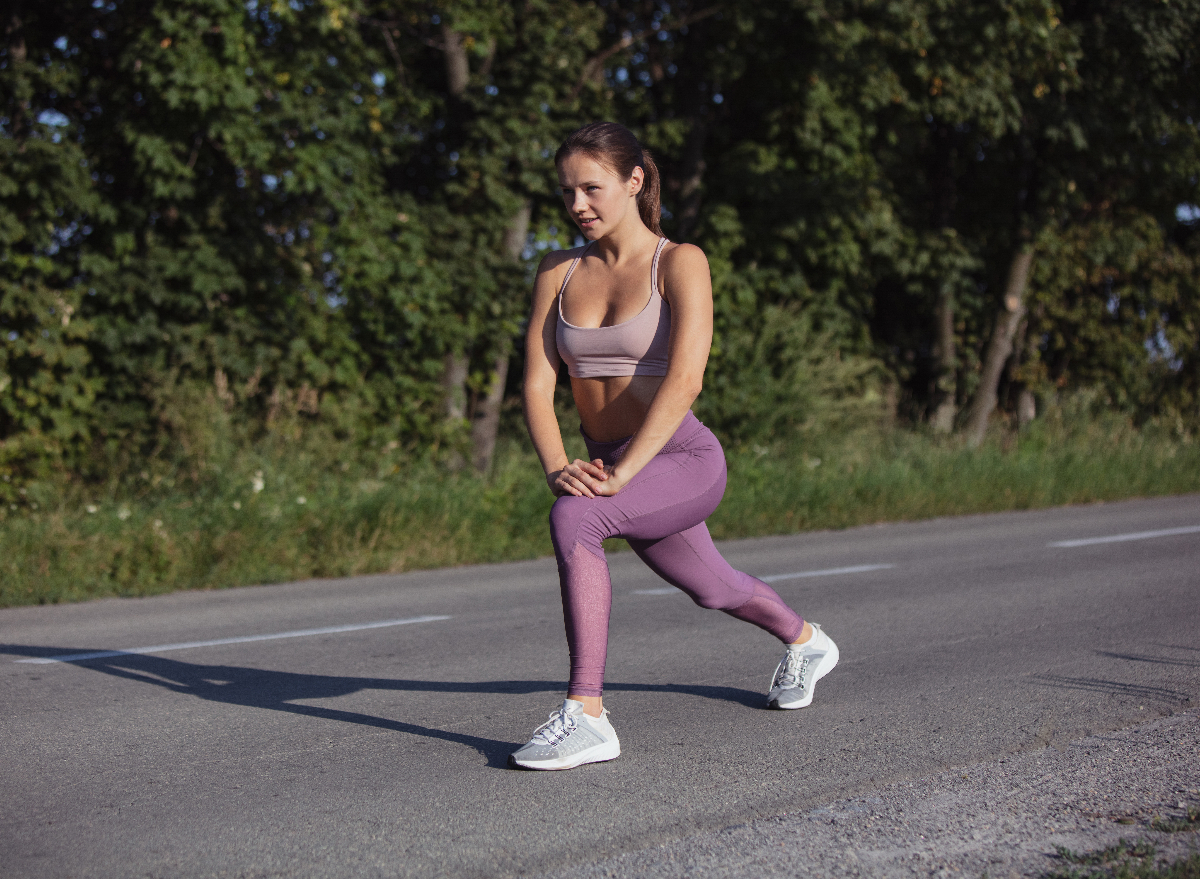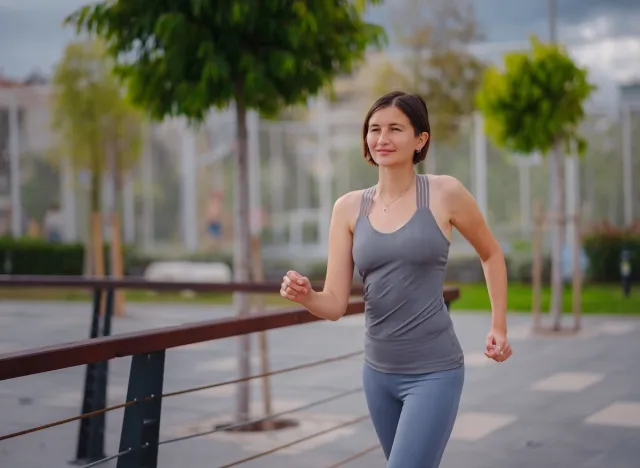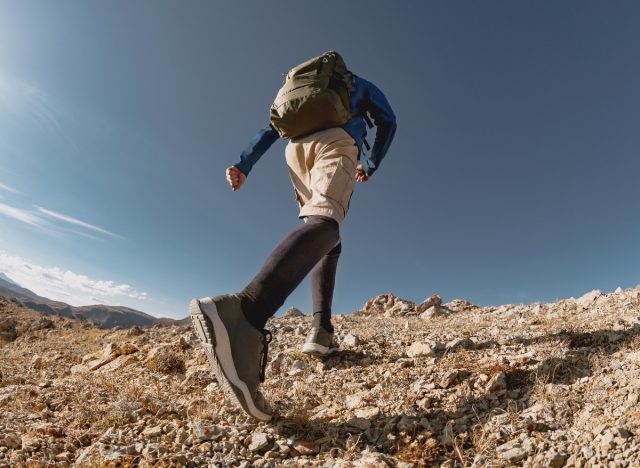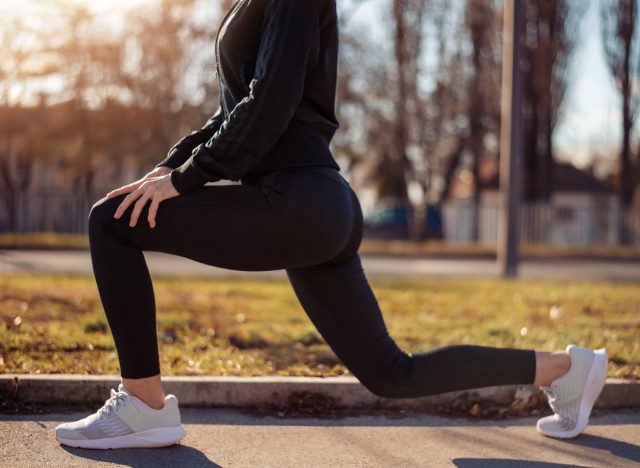7 Easy Ways To Burn More Belly Fat While Walking

Here's some shocking news: Walking is great for your health! Okay, I know this probably isn't too shocking, but it's certainly true. Regular walking is incredible for your heart health, your energy levels, your mood, and even your brain health, the Mayo Clinic reports. And if that wasn't great enough, research shows that walking can even help you melt away fat—specifically around your belly. So if you want to burn more belly fat, consider working these easy tips into your walking routine pronto.
More research reveals that walking programs can target the fat around your abdominals, which can help you can slim down and feel better. (Not bad for something that's free and requires no equipment!) So if you want to add walking to your exercise routine—or take your walking habit to the next level—we'll show you seven super simple ways to upgrade a regular stroll to help you shed even more fat and get better results.
Keep reading to learn seven easy ways to burn more belly fat while walking. And next up, don't miss Get Rid of Hanging Belly Fat With This Cardio & Strength Workout.
1. Change speeds.

This is the easiest and simplest way to crank up your walking intensity: Walk faster. I know, I know—it seems obvious, but there's a specific way to do this for great results. Don't just "walk as fast as you can for as long as you can"; it's better to use intervals to challenge your body while giving yourself a chance to recover and improve your endurance over time. For example, every minute, alternate between walking at a fast pace and a regular pace.
2. Walk uphill.

Walking at an incline is a great way to gently and safely crank up the intensity of your workout. It's also good for your posture because it encourages good walking mechanics and foot striking and even targets the muscles in your hips and hamstrings. Try looking for a route that goes uphill or walking on a treadmill at an incline. (Avoid grabbing the rails, if you can!)
3. Throw on a weighted vest.
Weighted vests are great for any walking workout. By adding some light resistance, you'll strengthen your muscles, bones, and joints without much impact, Healthline explains. Also, a proper weight vest helps you activate your core, as it forces you to carry the vest or rucksack with good posture.
Start with 10% of your body weight, and slowly increase the weight. Never run while wearing a weighted vest, and don't substitute a vest by putting weights into a regular backpack, because the force won't be distributed correctly on your body.
4. Add resistance exercises.

Another way to burn more fat is to add some bodyweight exercises every few minutes. That way, your walk becomes more like a "total-body" workout rather than just a ho-hum stroll around the block.
For example, every few minutes, do 10 lunges, 10 pushups, and 10 squats (which you can do with a weighted vest). That way, you'll target more muscles, crank up your cardio work, and boost your calorie burn.
5. Warm up and cool down.
Walking seems easy, but before any exercise session, it's important to warm up your muscles and joints—especially if it's cold or wet outside. Do some dynamic stretches, activation drills, and foam rolling so you can prep your body for physical activity and avoid pain, cramps, overuse injuries, etc. Then, when you're finished, it's the perfect time for stretching and extra foam rolling so you can avoid feeling stiff and sore the next day.
6. Change the path.

It's one thing to walk on a paved sidewalk; it's another thing to walk on a trail in nature with natural inclines and declines and a variety of terrain. Not only will this increase your calorie burn, but it will also improve your lower body strength—especially in your feet and ankles—as you navigate different paths. At least once a week, walk in a more natural setting—a park, a trail, a beach, etc.
7. Add more time.
Last, but not least, melt away more body fat by walking for longer to increase your fat loss and cardiovascular endurance. Also, as you fatigue, your muscles, bones, and joints will work harder, which builds more strength and endurance over time. Don't increase your duration too quickly or by too much, which can cause overuse injuries; simply add an extra five minutes to your walk every week or two.









